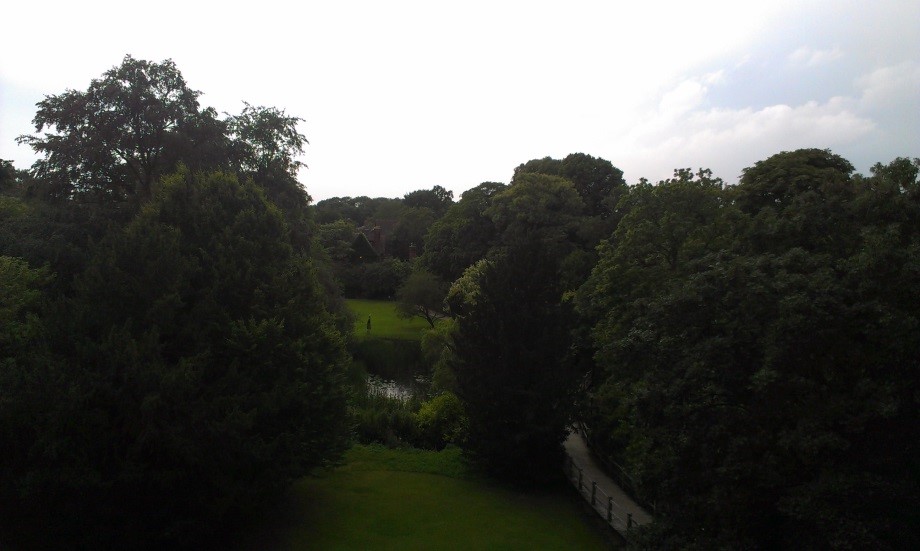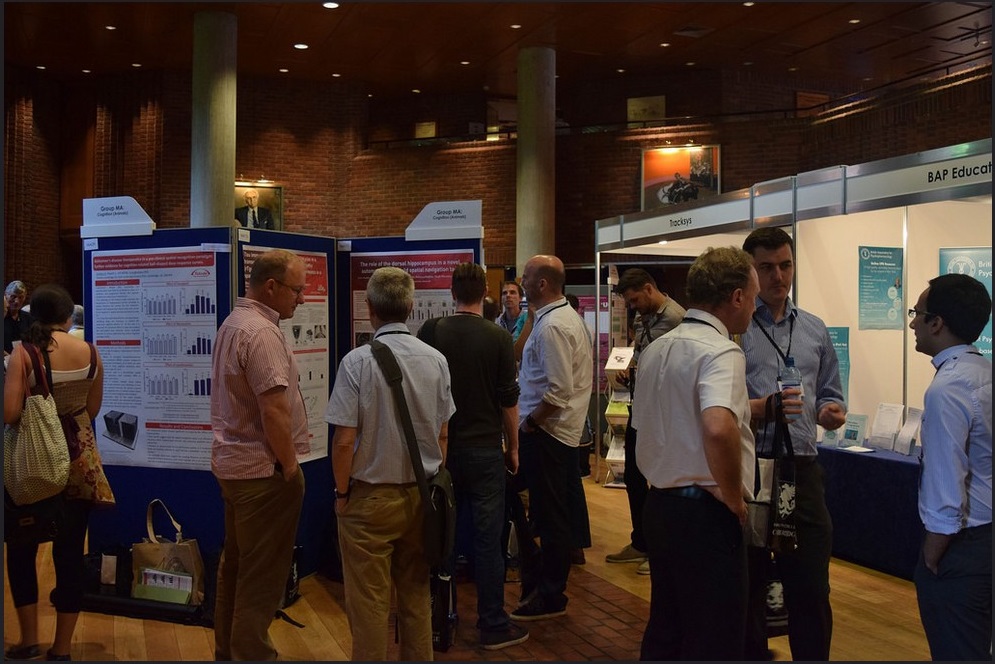This summer the British Association for Psychopharmacology (or BAP) celebrated its 40th birthday which was recognised by a special return to Cambridge, UK for the annual summer meeting.
The aims of the BAP are two-fold; firstly to support research that investigates “the biological basis of brain and behaviour and its alterations in psychiatric disorders” whilst also encouraging the study of new and existing pharmacological and psychological treatments that can be used to alleviate them. These aims align nicely with those of EUSARNAD where our research attempts to understand both the mechanisms that underlie anxiety disorders through studies of the brain (by for example utilising imaging techniques – Nienke) and behaviour (often by using computerised tasks to examine subtle indices of anxiety such as attention to threat), whilst also examining how current (e.g. pharmacotherapy – myself and Susie, mindfulness – Ben), and novel treatments (e.g. tDCS – Jo and Dan) may provide relief from the symptoms of anxiety.
This year, all attendees enjoyed the hospitality of Robinson College with both professors and students alike staying on-site in their modest dorms and breakfasting together in the canteen, which greatly encouraged some morning networking over a coffee.

Cambridge is a great place for a conference – it manages to be a unique blend of relaxing, yet motivating!
On both Monday and Tuesday an excellent array of posters were presented over lunch. Our modest department in Southampton put an impressive 9 academic posters on show this year covering a range of topics from the effects of mindfulness on the perception of emotional faces (Ben), to the early effects of the anti-anxiety drug duloxetine on mood and face processing (Dr Susie Bamford and myself). This really gave us an opportunity to “touch base” with one another’s work in our own department as well as share our findings with an attentive audience.
Our very own Dr Ruihua Hou also gave a stimulating talk this year on “a preliminary investigation of associations between attentional control and neuroinflammation” in the short orals session. She summarised some exciting associations that her team have found between anxiety, specific inflammatory markers and problems controlling attention, which, although preliminary, indicates the need for further investigation of drugs that target inflammation in the treatment of anxiety disorders – an important consideration for many EUSARNAD researchers.
The highlight of this year’s conference for me was the guest lecture entitled “40 years of BAP – a lifetime of psychopharmacology” by well-known Professor David Nutt, past president of the BAP and current Editor-in-Chief of the Journal of Psychopharmacology. David gave us a whistle-stop tour of the past 40 years of the BAP reflecting on both successes, such as the use of imaging techniques to extend our knowledge of neurotransmission (with particular reference to dopamine) and improved safety of antidepressants; and also failures, where he focused heavily on the withdrawal of funding from pharmaceutical companies and our apparent inability to predict which novel compounds will be effective in clinical trials.
He wrapped up his talk by challenging the audience to overcome the current adversities in psychiatry together, perhaps by accepting and adopting new statistical techniques and novel methodologies to perform good science, by building strong multidisciplinary collaborations to share new discoveries and provide different perspectives, and by helping the public/private sector see why it is necessary to invest in neuroscience research. This point really highlights the importance of organisations such as EUSARNAD that encourage researchers to build strong links with like-minded researchers across the world, and this can often be best achieved through the promotion of their work at meetings like BAP.
As a young researcher, I am in an exciting position to be lucky enough to see how the BAP (and mental health research more broadly) will evolve over the next 40 years. Let’s hope the scientific community work together to produce more successes and fewer challenges in the years to come. Thanks to the organising committee for a great conference – we all look forward to travelling to Bristol in 2015!
– Verity

